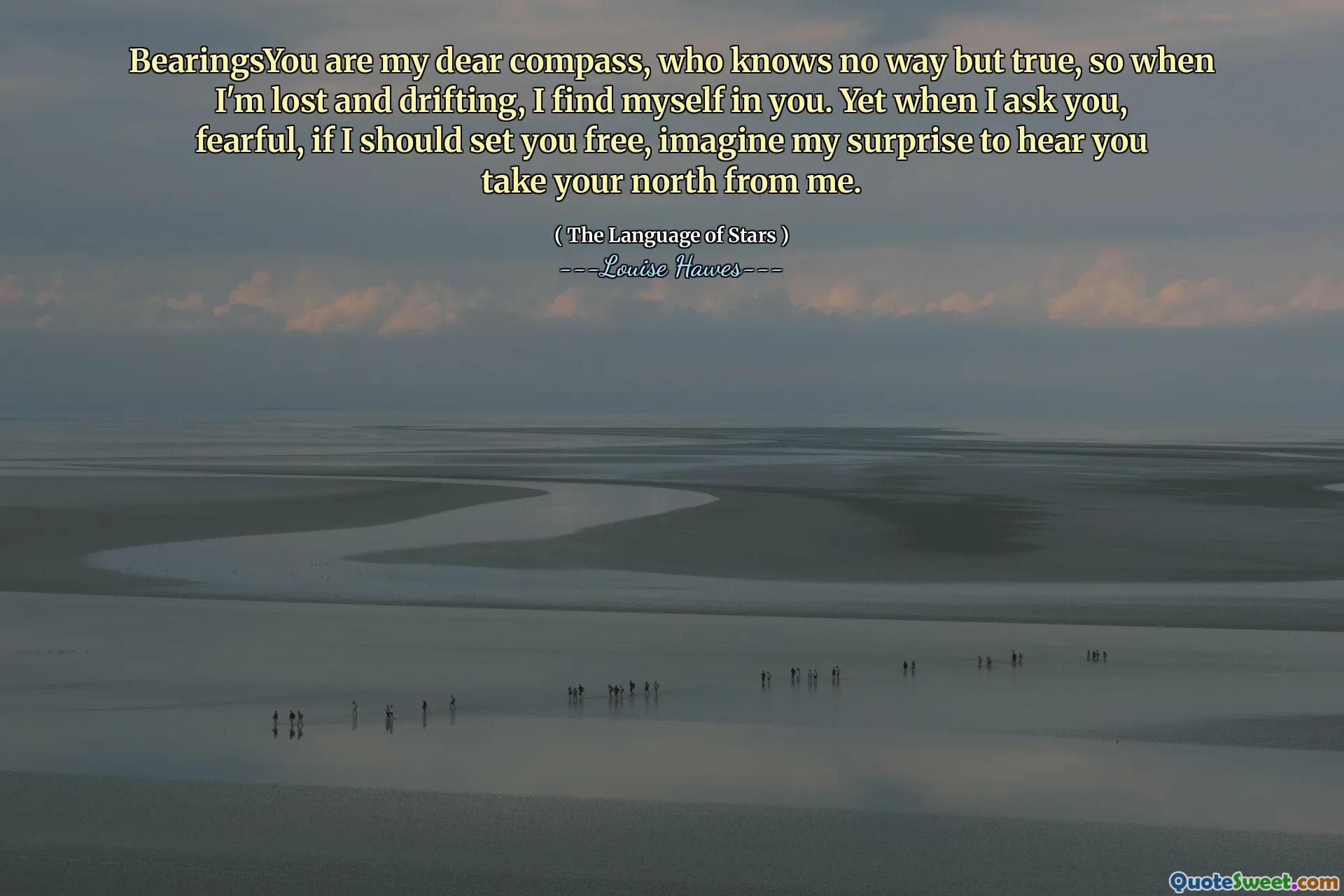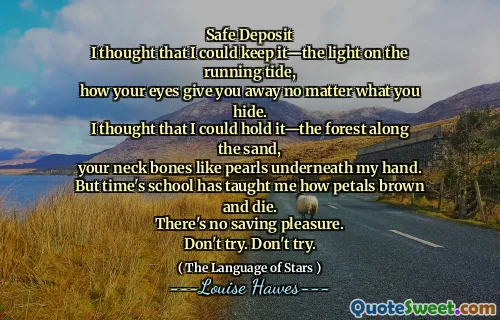
BearingsYou are my dear compass, who knows no way but true, so when I'm lost and drifting, I find myself in you. Yet when I ask you, fearful, if I should set you free, imagine my surprise to hear you take your north from me.
This quote beautifully captures the essence of reliance and self-discovery within a relationship. The metaphor of a compass as a guiding figure highlights the importance of trust and direction in the journey of life. The speaker compares their beloved to a compass that always points true, suggesting unwavering guidance and stability in moments of uncertainty. When feeling lost or drifting, the speaker turns to this 'compass,' finding clarity and purpose through their presence. What's particularly compelling is the reflection on freedom and dependence—there's a fear that setting the compass free might lead to losing guidance, yet unexpectedly, the compass's 'north' aligns with the speaker's own inner sense of direction. This signifies that true guidance, whether from others or within ourselves, often prompts self-trust and realization that guidance is ultimately internal or shared, not owning someone but trusting their influence. The quote invites us to consider the delicate balance between dependence and independence in relationships. It emphasizes that meaningful guidance is rooted in genuine connection, fostering growth rather than restriction. Moreover, the analogy underscores the importance of self-awareness; by relying on someone or something external, there's a potential to discover one's internal navigation. The surprising realization that the compass's north aligns with the speaker's inner compass suggests that authentic guidance aligns with our true selves, illuminating pathways we may not have recognized before. Overall, this quote resonates deeply about the importance of trust, self-awareness, and the reciprocity of guidance in nurturing a meaningful relationship, reinforcing that sometimes, the key to finding ourselves is through the guidance we cherish in others.







